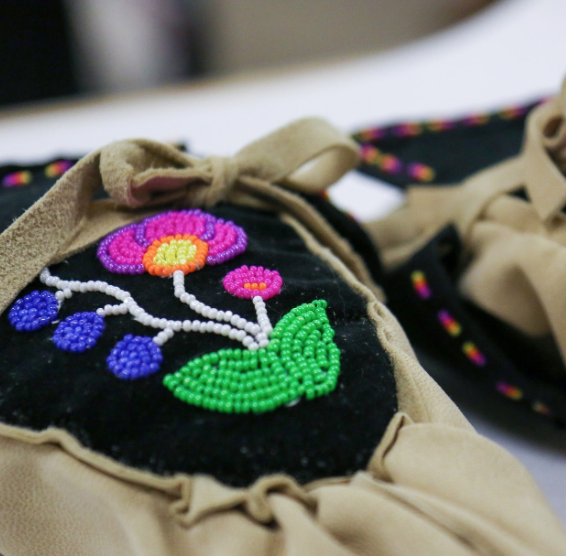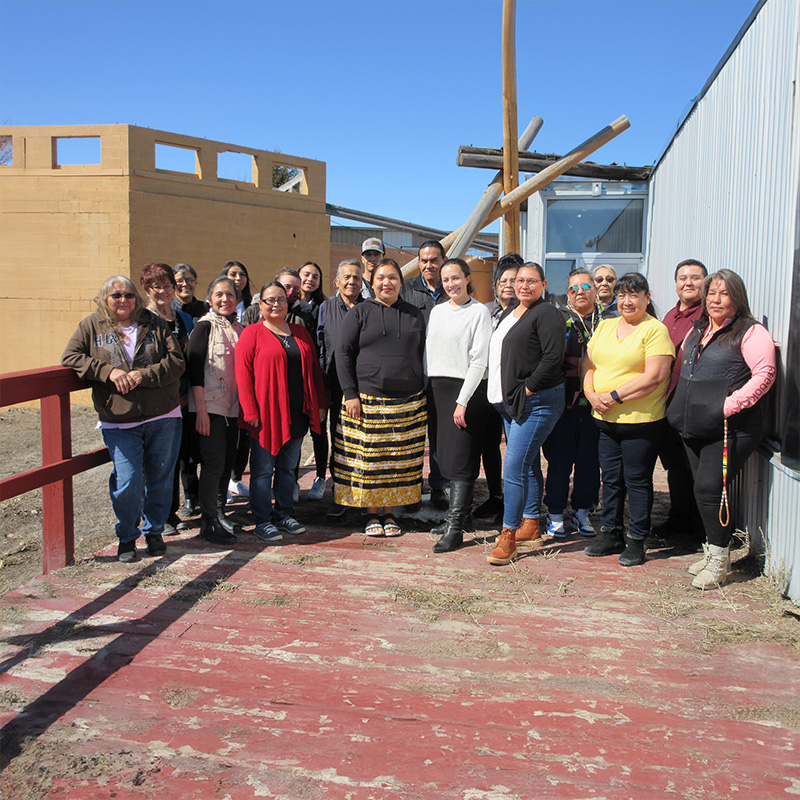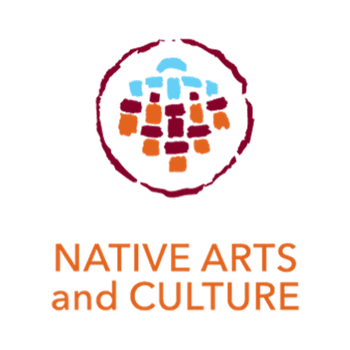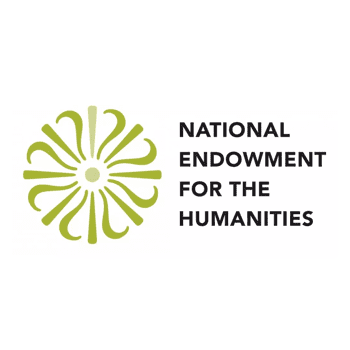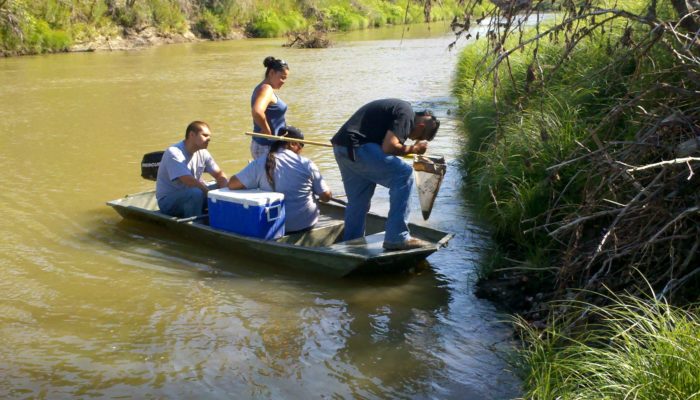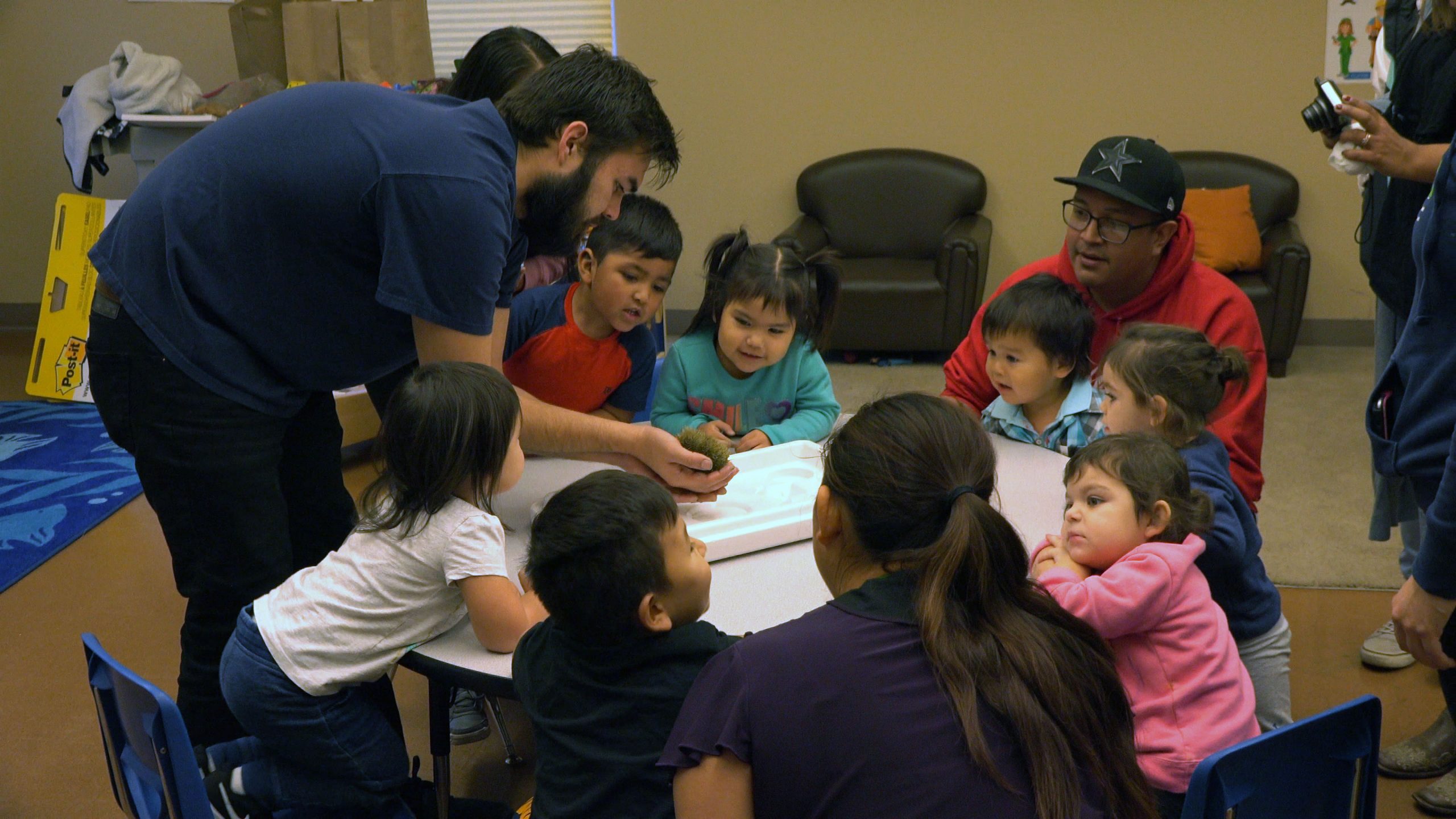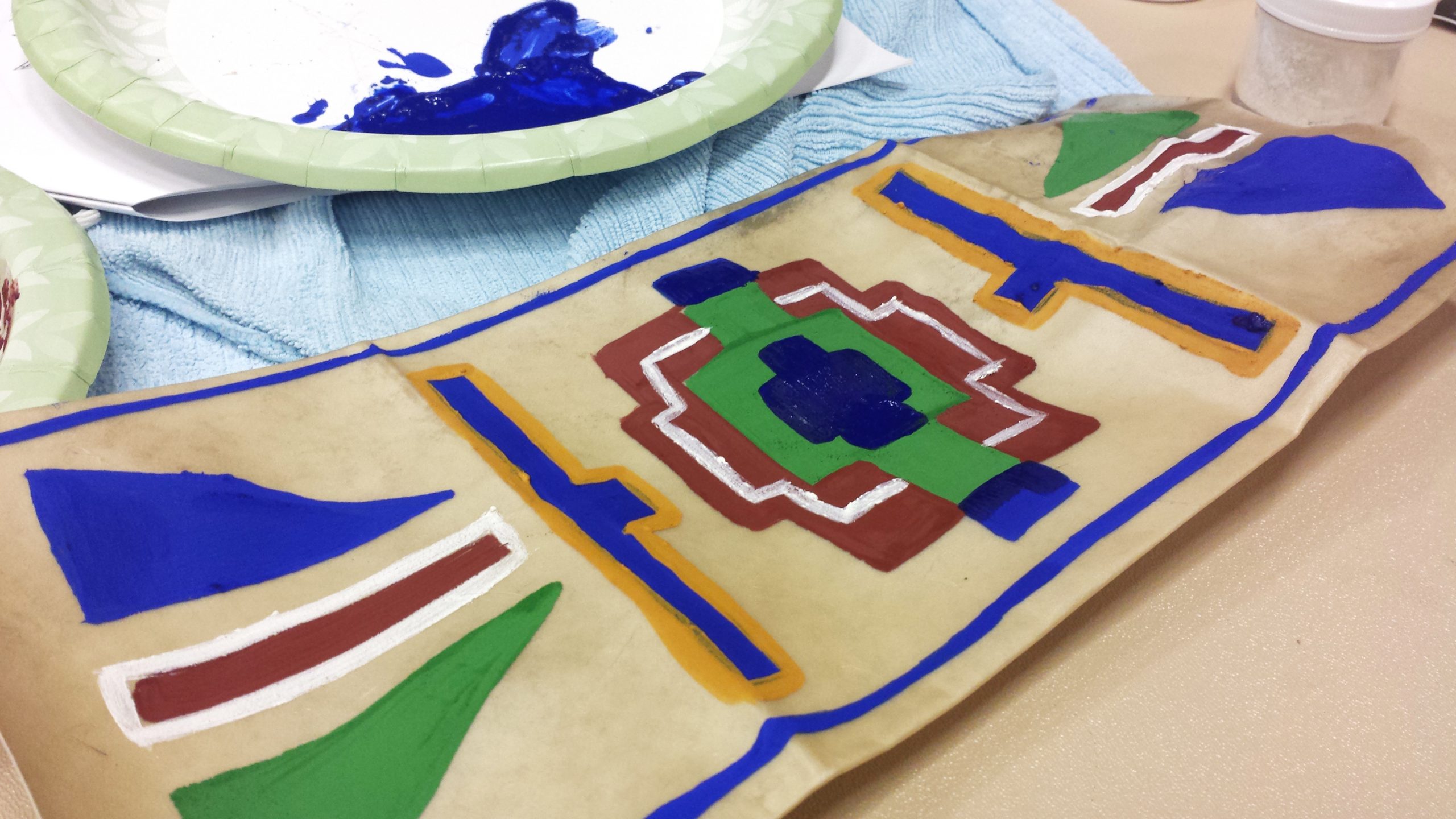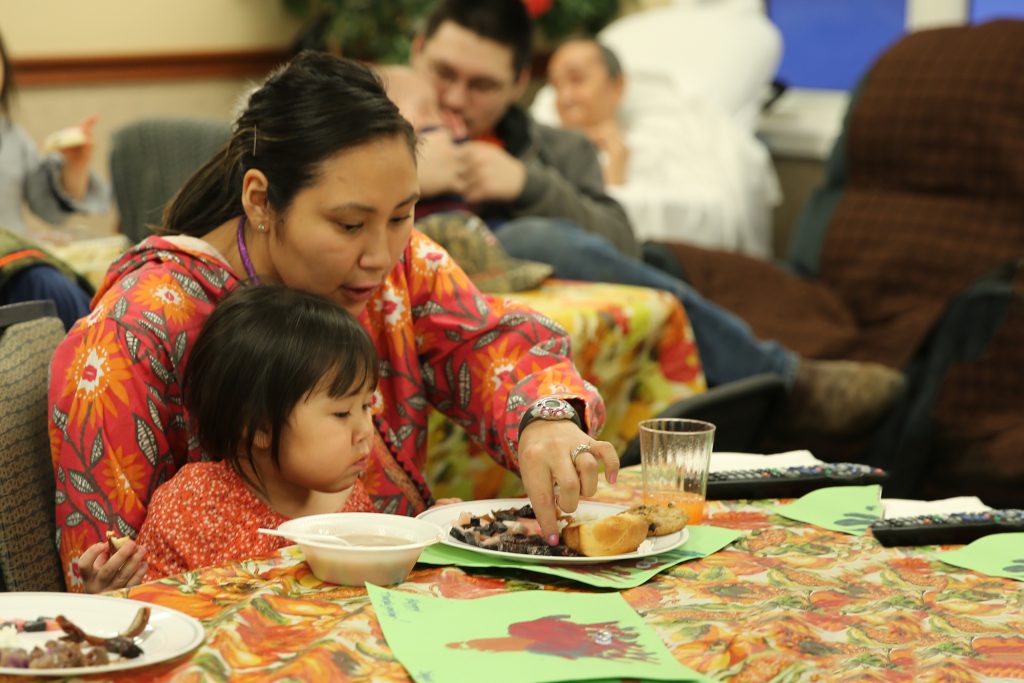Native Arts
Supporting Native Arts, Languages, And Cultures
American Indian communities face the risk of losing traditional arts, tribal languages, and cultural knowledge.
Strong Native communities are built on tribal languages, cultural knowledge, and traditional arts. With many communities facing the risk of loss of language, culture, and traditional arts, we provide grants and support for communities to restore, sustain, and pass on traditional knowledge.
Cultural Knowledge Teachers
Active Program Dates: 2023 – 2026
The Cultural Knowledge Teacher storytelling series highlights the Native arts knowledge holders who are helping students and community members strengthen their cultural identity through Native arts teaching, impacting current and future generations.
Nanitin Adeeshtłʼóół Weaving Strands of Knowledge: Native Arts and Culture Grant
Active Program Dates: 2023 – 2026
The Nanitin Adeeshtłʼóół Weaving Strands of Knowledge: Native Arts and Culture Grant Program supports TCUs in carrying out their cultural and community missions by providing place-based, culturally grounded learning opportunities in traditional and contemporary Native arts knowledge and skills.
Native Arts Enrichment and Expansion
Active Program Dates: 2020 – 2023
The Native Arts Enrichment and Expansion program purposes to enrich, enhance, and expand traditional and contemporary Native arts knowledge and skills at tribal colleges and universities (TCUs) and the communities that they serve.
High School Equivalency Community Building Grant in Native Arts
Active Program Dates: 2022 – 2023
The High School Equivalency Community Building Grant in Native Arts was a pilot program that supported TCU grantee partners to incorporate Native culture into their high school equivalency (HSE) programming through implementation of Native Arts community workshops hosted by their HSE programs and students. The purpose of the program was to encourage HSE student and alumni engagement in community building and support the transfer of intergenerational knowledge and skill.
Restoration and Preservation of Traditional Native Art Forms and Knowledge
Active Program Dates: 2013 – 2020
The American Indian College Fund has created a re-granting opportunity for Tribal Colleges and Universities (TCUs) to enhance the capacity of traditional Native art forms and knowledge at participating TCUs in the upper-Midwest.
National Endowment for the Humanities Grant
Active Program Dates: 1997 – Ongoing
The College Fund was awarded the Challenge Grant in 1993 by the National Endowment for the Humanities which led to the establishment of the NEH Cultural Preservation Endowment Program. The NEH Cultural Preservation Endowment supports cultural preservation and revitalization efforts for all 35 TCUs.
The Anheuser Busch Foundation Cultural Preservation Grant
Active Program Dates: 2014 – 2017
The Anheuser Busch Foundation Cultural Foundation Preservation Grant program was introduced in early 2014 and provides one-time annual awards to a selected tribal college or university (TCU) for the purpose of supporting cultural preservation.
Related Blogs
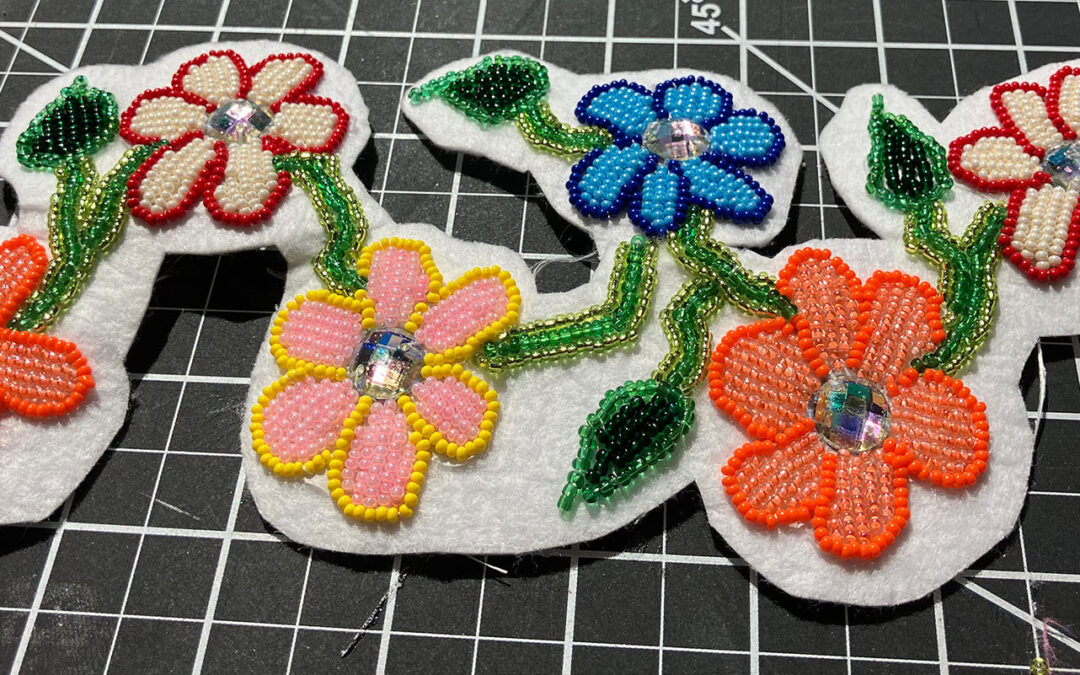
Remembering What Was Before Me
Written by Bryan Welsh, Cultural and Wellness Coordinator at Keweenaw Bay Ojibwa Community College Boozhoo, aaniin! Biinidigan! Our featured Native American artist this February is Mary Kay Shalifoe, Zhaawa nuung oo kwe (Southern Star Woman), Anishinaabe Arts adjunct...
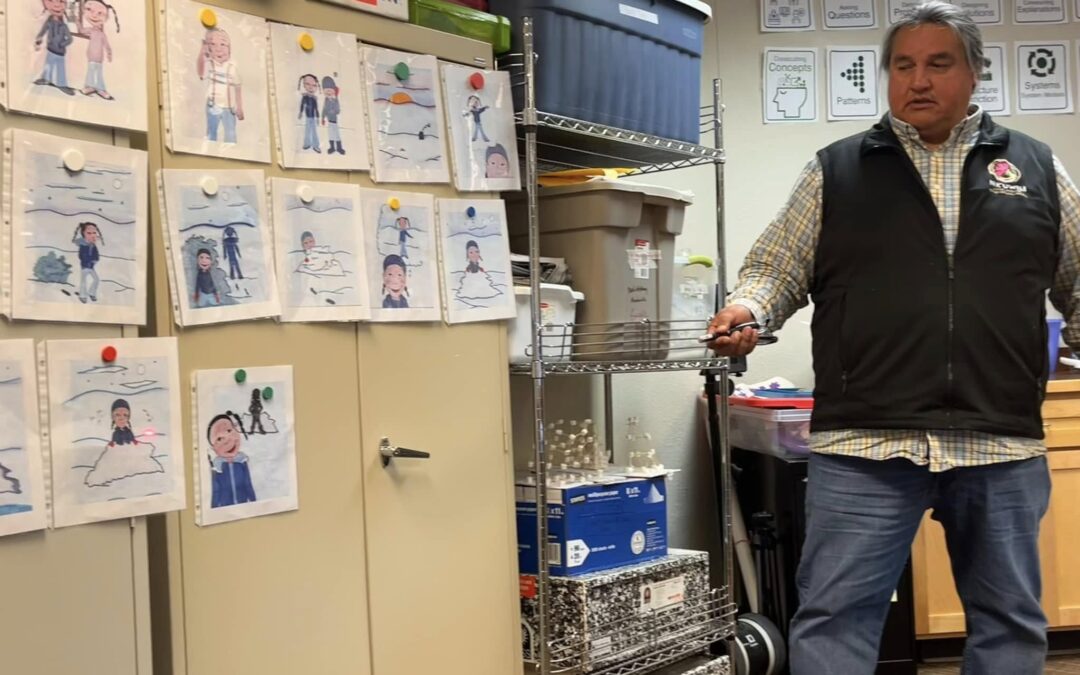
Inspiring a New Generation of Salish Language learners
Written by Rosemary Matt, Dept. Chair-Native Language Teacher Education & Séliš-Ql̓ispé Language and Culture programs, Salish Kootenai College Steve Arca, also known as Stipi, plays a vital role in the Salish Kootenai College community, particularly in language...
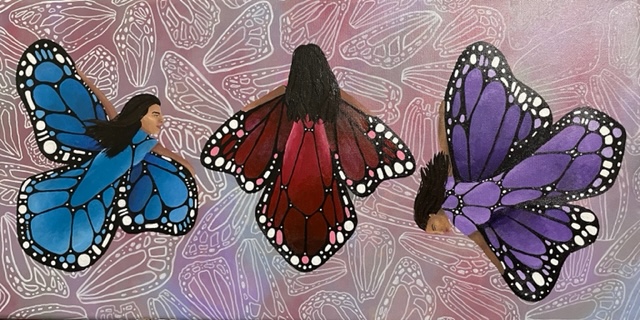
Indigenous Art Has No Boundaries
Written by Krystal Wind, Dean of Student Affairs, College of the Muscogee Nation Danielle Fixico is Chickasaw, Muscogee, and Choctaw. She is a College of the Muscogee Nation (CMN) alumna, class of 2017. She serves as faculty at CMN, teaching Art I and II, Freshman...
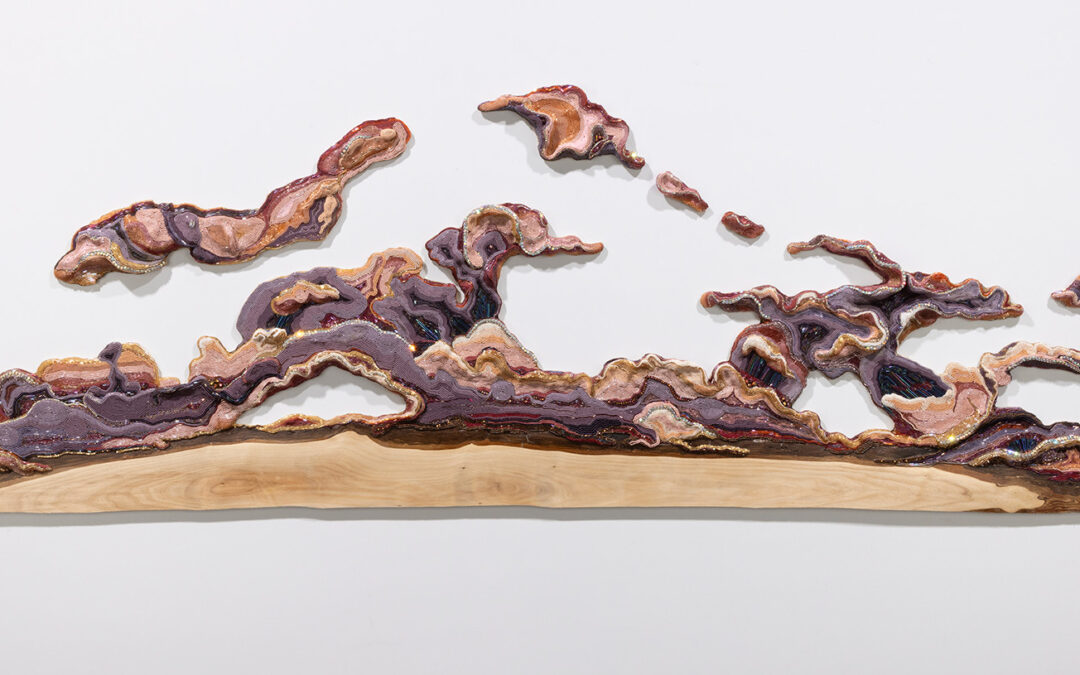
Exploring Futurism and Identity through Art with Mona Cliff
Written by Braydon Fitzpatrick, American Indian Studies Instructor, Aaniiih Nakoda College This past fall, Mona agreed to do an artist talk at Aaniiih Nakoda College (ANC), open to both ANC students and community members. ANC is dedicated to providing a platform for...


